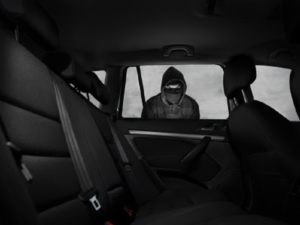Criminals turn to WhatsApp as “car theft epidemic” continues
UK vehicle crime continues to rise, with criminals now using WhatsApp groups to plan and execute car thefts.

AX says criminals are now using WhatsApp groups to create ‘shopping lists’ of desirable cars to steal and to share information on gaining access
According to vehicle protection specialists at AX, car thieves are now mobilising on social media platforms and stealing cars to order.
Tactics include drawing up and sharing ‘shopping lists’ of makes and models to find buyers, using such platforms to share information on how to use technology to gain access to vehicles and preparing bogus number-plates from similar vehicles to rapidly clone vehicles.
The wave of thefts has been intensified by the vulnerability of ‘keyless’ systems, which criminals are able to exploit using key signal amplifiers and decoders costing thousands; security ratings launched by Thatcham Research in March this year found more than half of the new cars launched in the first couple of months of 2019 had potential keyless entry/start vulnerabilities that could leave them vulnerable to so-called ‘relay’ attack.
According to Home Office figures, the number of vehicles stolen in Britain has almost doubled in the last five years. In 2017/18, more than 112,000 cars were taken illegally, up from just over 77,000 in the 2013/14 financial year.
AX’s director of investigative services, Neil Thomas said: “The highly organised criminal networks are constantly looking for more secure ways to carry on their ‘businesses’ online and use social media with encrypted messaging capabilities or even online games to covertly communicate with each other.
“The sheer volume of thefts is practically a car theft epidemic and is enabling criminals to purchase costly technology which then fuels even more car crime.”
In terms of motorists protecting themselves, Thomas added: “We always suggest parking in well-lit areas and would now recommend old-fashioned steering wheel locks, as well as considering covert devices to protect their vehicle.”














